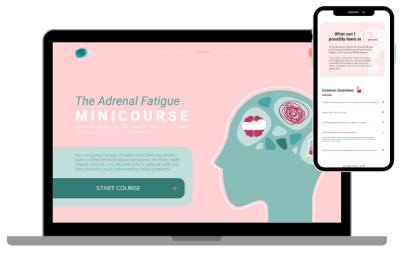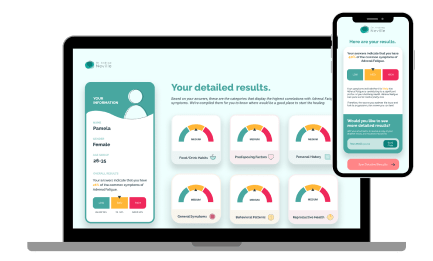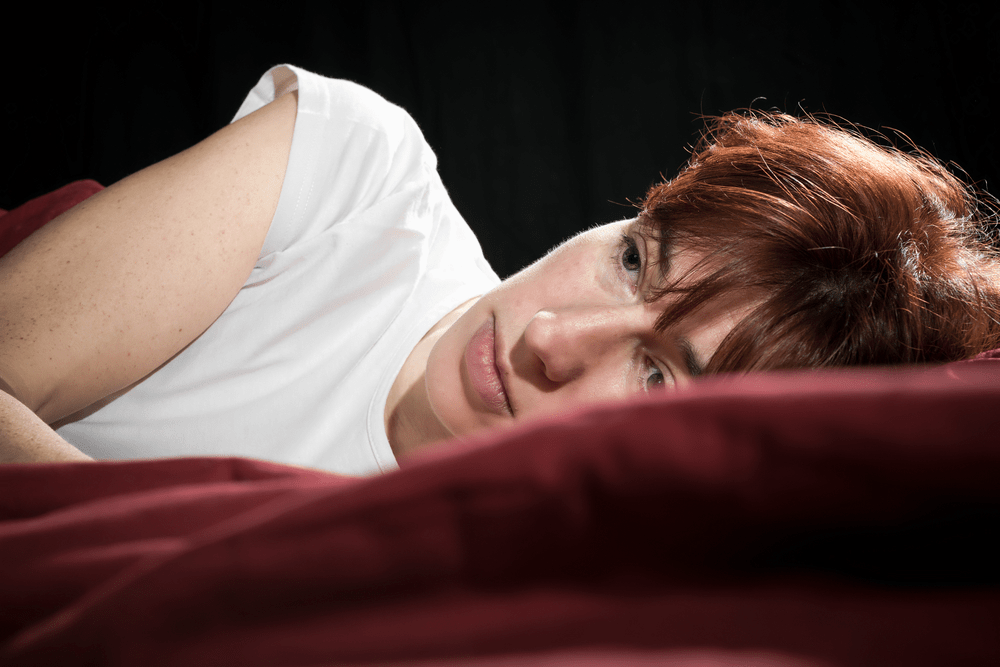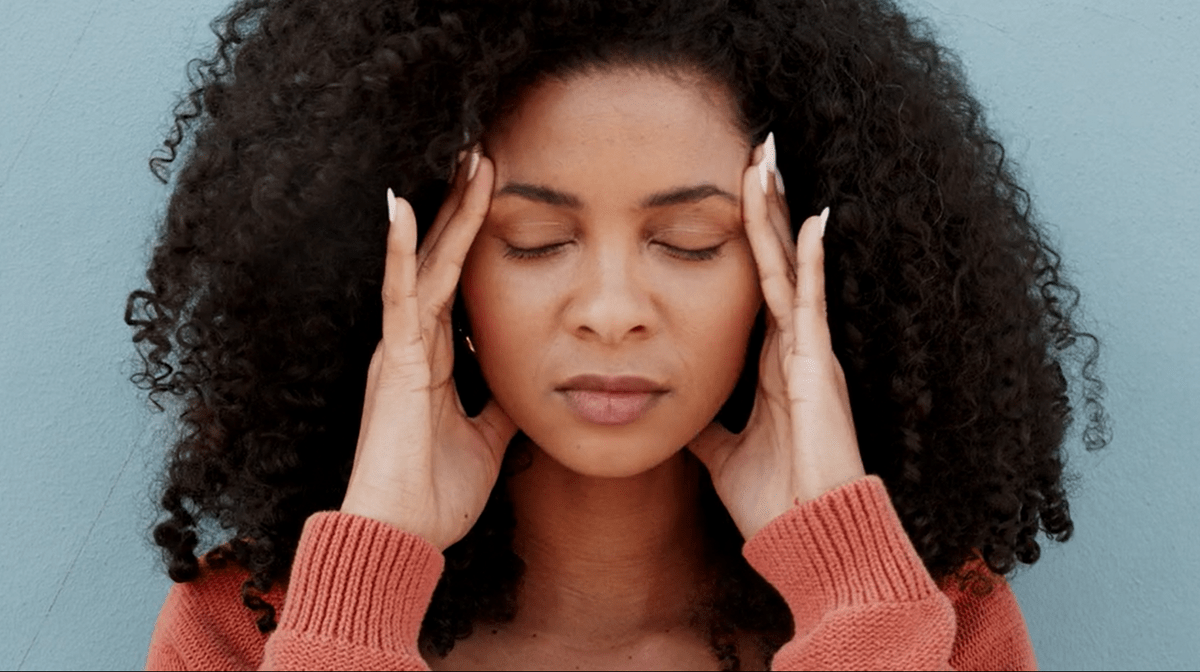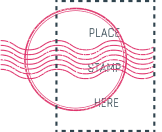Connecting the Dots: Hormonal Imbalance & Insomnia
Getting quality sleep is one of the most crucial ways to stay healthy and support your immune system. But for people dealing with hormonal balance and Adrenal Fatigue, the concept of restful sleep just feels like a passing dream. Stressed adrenals and inconsistent sleep patterns will wreak havoc on your daily life.
How Hormonal Imbalance Causes Insomnia
If you struggle to fall or stay asleep, you may have underlying issues like stress hormone imbalance causing insomnia. When your hormones are out of balance, It leads the rest of your systems becoming out of balance.
Hormone imbalance, insomnia, and Adrenal Fatigue all go hand in hand.
First, Adrenal Fatigue kicks in from chronic longterm stress response dysfunction. This throws your hormones off balance. From there, your hormone imbalance can cause insomnia and other systemic dysfunctions.
Crucial hormones like cortisol control your sleep quality. When cortisol is imbalanced throughout the day and night, it’s easy to see how connected your hormones and insomnia really are. But with the right support, you can beat Adrenal Fatigue and take control of your sleep and health.
Why is Sleep Important for Overall Health?
Restful sleep offers significant benefits to your overall well-being, as well as your body’s ability to heal and repair. Studies show that if we don’t sleep, we quickly start to decline in function and health.
A review of multiple studies concluded that when individuals are deprived of REM sleep — that’s deep, dreaming sleep — they start to experience increased sensitivity to pain. Being in pain can, in turn, make it harder to fall asleep.
How are Hormones & Insomnia Related?
To address major underlying causes of sleep issues, we have to dive into the adrenal fatigue and insomnia connection. When you have a hormone imbalance, insomnia can damage your mental and physical health, making it more difficult for your body to correct those imbalances.
Fixing your hormone imbalance & insomnia issues requires a look at which specific hormones are causing insomnia in the first place. Your hormones control a lot of your body’s processes, and understanding how they work can help you recognize areas you can work on.
Cortisol and Sleep
Cortisol, produced by your adrenals, regulates your circadian rhythm. This helps to define your sleep patterns. Your adrenals release high amounts of cortisol into your body in the morning to get you up and animated for the day. Gradually, and into the evening, cortisol release slows until it’s at its lowest levels right before bed, easing you to sleep.
Cortisol has many other jobs because it’s your primary stress hormone. With chronic stress over time, cortisol levels become erratic. Cortisol suppresses melatonin, which helps you sleep, as well as your growth hormones. Too much or too little cortisol at the wrong time upsets your sleep cycle and puts added stress on your body and mind. The more overworked your adrenals are, the less balance it can maintain. If that’s not taken care of, your out-of-control hormones causing insomnia will upend both your sleep and your adrenals.
Growth Hormones and Sleep
Sleep directly impacts growth hormones, which help us develop when we’re young, and promote healing and repair throughout our lives. Given the fast-paced, stressful lives most of us live, it’s crucial to get a full night’s sleep and allow our bodies the time to rest and repair over time.
Rebalancing and healing your hormones and insomnia doesn’t happen overnight. Your first step should be talking to a professional and getting on a treatment plan so that the changes you’re hoping for are permanent. In the meantime, there are a ton of ways to help support your journey to dreamland, like practicing good sleep hygiene.
Top Tips for Those Suffering from Insomnia & Adrenal Fatigue
Sleep dysfunction is complex, which is why sleep meds often don’t work for everyone. Hormone imbalance, especially your adrenal hormones, all need to be realigned. While there’s no quick fix for sleep dysfunction, you can take steps right away to start getting better sleep at night.
Mind-Body Connection
Move as much as you can throughout the day without overdoing it. Engage in minimal exercise to move your body, rather than to lose weight. It’s more about proving to your mind that daytime is when you want to be active, instead of in the middle of the night. Avoid exercising too close to bedtime, as this can be overstimulating.
Quieting the mind throughout the day with meditation also gives your subconscious mind time to wind down, even before the daylight is due to end. This is especially important for those with obsessive thoughts.
Sleep-Oriented Routine
Your body loves routine. Planning regular wake times, bedtimes, and mealtimes will help establish and reinforce those cycles so that you start falling into a more natural rhythm.
Get to bed earlier, ideally between 9 p.m. and 10 p.m. or as close to that window as possible. Growth hormone output levels are highest between 9 p.m. and 2 a.m., so you’ll need to get to sleep early enough to catch this window of repair. If you stay up beyond your energy window (i.e. push yourself through evening fatigue), your adrenal glands will kick in to release extra hormones to meet the energy demand. Once those extra hormones are released, there is nothing you can do to stop it; you’ll be awake for hours. This is a “second wind,” and anyone dealing with chronic fatigue and adrenal fatigue should avoid this.
Environment and Surroundings
Use the bedroom only for bedroom activities. Using the bedroom for sleep gives positive feedback to the body and provides a Pavlovian response to stimulate melatonin release. Melatonin helps to get us to sleep and stimulates the metabolic maintenance cycle. Reading stimulating books and playing video games will do the opposite, stimulating stress hormone release.
Dark bedrooms help induce sleepiness. The body produces melatonin in response to the pineal gland’s perceived reduced light through the optic nerve. Keep your bedroom comfortable, warm but not hot. Research suggests between 60-68 degrees Fahrenheit is the ideal temperature range for a good night’s sleep.
Diet and Nutrition
People who have issues with their adrenals often wake up in the middle of the night to use the bathroom. Adding more sea salt (note: this is different than table salt) to your diet will help with water retention and lower your urge to urinate throughout the night. Cruciferous vegetables, like kale, Brussel sprouts, and broccoli help to right your estrogen hormone imbalance, which eases symptoms of insomnia.
Eating a fatty or protein-filled snack before bed helps maintain balanced blood sugar levels. This is especially useful for individuals with diabetes, kidney issues, or adrenal gland deficiency. Similarly, sugar and grains should be avoided hours before bed. Spikes in your blood sugar can wake you up in the middle of the night as your body tries to stir you into taking action.
Can a Professional Help With Hormones Causing Insomnia and Adrenal Fatigue?
To restore your hormonal balance, you must first address your adrenal function. Since your adrenals help regulate hormones that cause insomnia, helping to heal your adrenals first is imperative.
For good sleep hygiene to be possible, you’ll need to work on a few things at home, as well as with a professional. The first step is to identify and treat any nutrient deficiencies. This helps your body heal and your adrenals to feel less stressed from within. From there, we start to balance your hormones. How is that done? Through the treatment of your underlying Adrenal Fatigue.
I can work with you and explain how to stop damaging the sleep centers in the brain with excess cortisol and adrenaline. Creating a plan together, we’ll focus on repairing and restoring damage from stress hormones by setting guidelines for lifestyle choices.
By taking these actions, you’ll start to restore the systems and hormones in your body that help to calm your mind. In time, you’ll see those high cortisol and adrenaline levels go down. The physical processes that regulate stress and sleep will start to balance out, which will help your body create the right amount of melatonin for a good night’s rest.
Beating Adrenal Fatigue and Insomnia
Balancing hormones and neurotransmitters takes time. Healing, repair, and rewiring of your brain won’t happen overnight. Changes in behavioral patterns that foster poor sleep hygiene habits require practice. There’s no better time to start than now.
The key is being patient with the process. Once the hormones causing your insomnia start shifting into balance, you should notice gradual improvements over time. You may initially get to sleep a little sooner; you may notice you wake a bit less, or that when you do wake, you can get back to sleep more quickly.
Even after you notice these changes, you may not immediately feel fully refreshed after waking. There is a deficit of energy that was created with stress over time, a deficit that has to be “repaid.”
Once you begin to repay, your energy bank account starts to fill back up. Your adrenals and sleep will balance out, and you’ll feel more rested and relaxed. You’ll be able to take on life’s many surprises with more ease than before.
When your adrenals and sleep start to balance, the hormones causing insomnia will adjust too. You may even notice your short-term memory is better, or that your reflexes are getting quicker. Celebrate every milestone — and keep being patient without yourself.
Healing is a choice — your choice— and it takes time and commitment. But there’s no question that anyone suffering from chronic fatigue can heal. Adrenal Fatigue and insomnia and the many other painful symptoms that come with it can be helped with adequate, comprehensive treatment.



